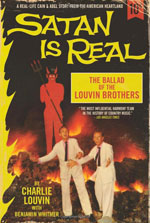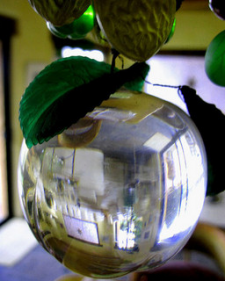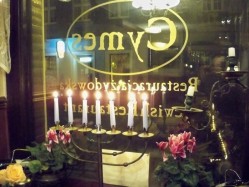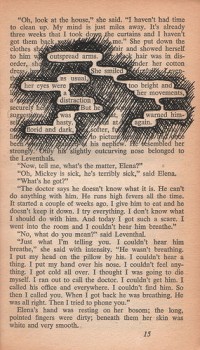What TW Readers Are Saying
Viva la Talk—Donate to TW in 2012!
Since Talking Writing’s launch in 2010, the editors have selected comments by readers and featured them on this site.
Help us keep the talk going. As you make your end-of-year donations, please give generously to TW—a unique nonprofit magazine that sparks the lively conversations among writers and readers you’ll find below.
You’re captured the essence of a writing group—it is, indeed, sacred! ‘My job is to have faith.’ Love it!
— Melanie Lynn Griffin
I just wrote a book for parents on facilitating writer’s workshops, because there’s nothing like a writing group to keep a writer going, and I believe that’s absolutely true for kids, too. I’m thrilled to have your essay to share with parents, to give them a sense of what a writing group can mean. — Patricia Zaballos
Kate Brandt responds:
I want to thank everyone for your comments. It feels a bit like being part of a larger, virtual writing group. I am just now reading True Notebooks by Mark Salzman, about his experiences teaching writing in a juvenile home. It reminds me of my own job, teaching adult literacy. I always love to teach writing to adult students, because it gives us an opportunity to leave behind differences of class and race and communicate from our hearts, where we all have a certain expertise. Sanctity!
Such a poignant and vivid portrait of modern Poland coming face to face with its own history. I’m particularly hoping that students and young people in general will be inspired to stay curious and reflective about the past and what it can teach us all.”
— Elizabeth Rosner
I was deeply moved by what you have written here. But the ‘emotion’ doesn’t feel like any sort of ‘emotion’; it feels like cleanliness…. All the issues you raise are relevant for me as are the questions you ask and struggle to answer. Furthermore, I agree wholeheartedly with your ‘I believed a mystery could be a serious, literary novel in the right hands’ and applaud you additionally for saying so. — Susan Huddis Koppelman
Thank you for introducing me to the work of Richard Zimler, a person I now feel I have already met. — Ann Neuser Lederer
Richard Zimler responds:
[M]y Polish friends assure me that there is an ongoing discussion in Poland of much of what you say. Of course, there will be ignorant anti-Semites in many places in that country for many years to come, but things are improving. And the young people in the cities there gave me a lot of hope.
Susan—cleanliness…! Thank you for that feedback.
 Why We Read Memoirs by Musicians:
Why We Read Memoirs by Musicians:
We musicians are always on a quest…. An old, long-departed jazz guitar playing troubadour described it to me as that cosmic second, that actual nanosecond while a musician is playing: when the stars, the temperature, the crowd, your fellow musicians, and you and your instrument conspire in absolute synchronicity and pure joy. It is that cosmic second that you realize, ‘This is perfection. This is why I’m alive.’ — Clyde L. Hodge
Good golly, what a righteous testament to music and to writing about music. The world is full of wonderful musicians making wonderful music, but there aren’t but a handful of people who can write about music as well as you do here.
I loved your description of the mid-60s bar band scene; only missing thing? The name of your band. Everything else was vivid and as tasty as a Steve Cropper riff. — Jeremiah Horrigan
Fred Setterberg responds:
The name of our band: The Post Raisin Band. There was another PRB, a punk band from Indiana (I think…). We were, as we used to brag, 100% Soul. And much older.
 Lust: The Literary Courtesan
Lust: The Literary Courtesan
(from “Seven Writerly Sins”):
What you discovered in your forays into erotic writing brings to mind the concept that creation is akin to procreation. The sexual impulse is an enriching, driving presence in the act of painting, just as it is in your writing. — Philip B. Freyder
It never occurred to me to sell what I wrote, but in the heady days of my post-children dating, I enjoyed writing to strangers and piquing their erotic curiosity in a genteel way. I kept my distance, always enjoying the lure as much as, if not more than, the encounter…. I thought I was odd in my intensity until I read this essay. — Sarah Williams
Lorraine Berry responds:
I felt it was finally time to write about how I used to write erotica, because it had such an impact on me as a writer and as a woman. As I tell my students, you know when you’re getting to the good stuff in a piece when you start feeling it in your body. If your chest is getting tight or full, or if, as happens to me, you start feeling aroused, you know that you’re bypassing your internal editor and taking dictation from the Muse. (I know. She doesn’t really exist. But when I am in the right frame of mind, that’s what it feels like to me.)
 Sloth: The Slyest of Sins
Sloth: The Slyest of Sins
(from “Seven Writerly Sins”):
As a sometimes-slothful writer, I tell myself that when I appear to be doing and accomplishing nothing, I’m really giving my unconscious mind time to do lots of good work without my interfering with it by doing anything productive with my conscious mind. But then denial is my go-to coping mechanism. — Ellen Hawley Roddick
Jeremiah Horrigan responds:
[T]o invoke a spiritual tradition besides Christianity, conscientious ‘not doing’ sounds to me like a bedrock principle of Buddhist practice.
But I’ve found sloth can make a ‘lack of joy’ seem righteous and good. And that, for me, is a part of why it’s such a sly old sin.
 Wrath: The Tiger Inside
Wrath: The Tiger Inside
(from “Seven Writerly Sins”):
“Is THIS familiar! I was born to a father with a prodigious temper. Mine is somewhat tempered by guilt and gender as well as age, I suppose–not to mention the memory of his outbursts. Still, I can work up a thunderhead of righteous indignation given the right circumstances, large or small. My anger, even if it shrinks to ‘mere’ irritation, is a powerful motivator. — Nikki Stern
I wonder how many writers are silent with their anger and rebellion. And how many see it, even the so-called quiet novels, as their chance to finally roar.”
— Nichole Bernier
Martha Nichols responds:
Authors who successfully ride the tiger are also scrupulously honest with themselves, and it is hard to be that honest, all the time. I know well, having masked and largely frittered away my angry energy for many years. But at this point, I feel the struggle with anger—and with scrupulous self-honesty (if I can be allowed that word)—is worth it.
One thing I wonder is, who reads Amazon reviews, and how deep do they go? For the most part, I find them poorly written and amateurish. And, as a marketing guy, I think the practice of paying for reviews is reprehensible. — Ken Honeywell
I have, at times, felt very disheartened. It’s many months since my husband published his first book, and I wrote that review [of John Locke's book], and, boy, how my eyes have been opened since then. Am I defeated? No way.
— Donna Brown
David Biddle responds:
I’m a firm believer that quality and commitment to excellence is the currency for success in the art world. There’s always strange doings and nefarious intent, but it gets weeded out over time. So we’ll see what happens with consumer reviews over the long haul.
I would never tell someone where to draw the line. I think we all have our own borders within. I am happiest between borders and don’t think at all about genre while writing. The problem for me is finding a publisher, because publishers want to nail your work down. My own prose poems borrow from many genres. I like hybrids. I like collage. I like to combine. — Theresa Williams
I’d be interested in hearing your thoughts about another hybrid form: the lyrical essay. I just attended a workshop on the malleable form of the essay. The lyrical essays that we looked at really made an impression on me: “Leap’ by Eric Doyle and ‘Otis and Jake’ by Geoff Schmidt…. The story is told in brief flashes, like recalling a memory. White space is as important as type space…. Interestingly enough, I found one site that categorized these two works as prose poems, though all the others (when you do a Google search) refer to them as lyrical essays or just essays. — Nancy Purcell
David Meischen responds:
I am gratified by the passionate and insightful responses here…. About prose poems and flash fictions: I think some prose poems are fictions, so why not call them flash fictions? That said, a confessional poet could write a prose poem that is meticulously truthful/autobiographical—so not flash fiction. I DO love to look at the intersection between fiction and poetry.
 Hitchcock Got “Rebecca” Dead Wrong:
Hitchcock Got “Rebecca” Dead Wrong:
I read Rebecca at exactly the right moment in my youth and was completely captivated but oblivious to matters of craft. Now I am off to the library (where it will surely be) to read it again and learn from Du Maurier’s artistry. — Anna
I’m totally with you. I thought Hitchcock’s Rebecca flattened the story into a pedestrian ghost-paranoia tale. I came to the novel through the BBC adaptation and my much-treasured copy of the novel is the companion to that (which you’ve pictured here). About 10 years ago, the National Film Theatre showed the series and it was every bit as haunting as I remember, and, I think, does as much justice as possible to the novel. — Roz Morris
Elizabeth Langosy responds:
One of the great pleasures for me in writing this piece was the chance to reread Rebecca. I’d expected to skim through it for details but ended up lingering over every word.




